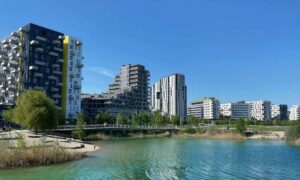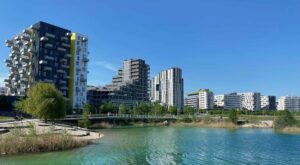(Editor’s note: This is Pt.1 of a two-part seminar on buying a property in Spain.)
After nearly five years of renting properties, I eventually took the plunge and bought a house, having found one that I really liked at a very good price and in the perfect (for me) location. I also learned a lot along the way and wanted to share a few important observations. The first thing I’d say is don’t rush into buying a property in Spain.
We’ve all heard it said on many occasions by advocates of “buying” and those with a vested interest (AKA real estate agents) that renting is dead money and, yes, they are correct to a point.
However, dead money IS ALSO buying a property in Spain that one, two or three years down the line, you wake up one morning and say to yourself, “Perhaps this was a mistake and maybe I’d be happier somewhere else (or even back home).”
The reason I say it is dead, or rather wasted money, is because of the costs associated with buying and selling a property when you make the wrong decision.

What are the costs of buying and selling property?
The generally accepted amount you need to set aside when buying a property in Spain is between 12 percent and 15 percent, made up predominantly of taxes, legal, notary and land registry fees. So that 200,000 euro property you want will cost you up to 230,000 euros.
Selling a property is no less complicated and no less costly.
To begin:
• you have agents’ fees to pay, say five percent (though it could be significantly more or less, depending on the area and agent)
• plusvalia, a local municipal tax based on the rateable value of property and the number of years that have passed since the property last changed hands
• capital gains tax
• legal and notary costs
• energy performance certificate
• 3-percent income tax provision (non-residents only)
• mortgage cancellation and registration fees (if there is a mortgage connected to the property)
IT’S a long list!
Rent first
Suffice to say that selling that once dream home that initially set you back 230,000 euros may well leave you with only 180,000 euros in your pocket. So, now you’ll understand when I say think before you buy and maybe rent first. Rent first, ideally in the location you want to live, take the time to explore the different areas and get a feel for what it’s like during both winter and summertime.
We first moved to Javea on the Costa Blanca about five years ago. Winters there can be surprisingly cold and wet (I’m thinking, “Gota Fria” or “cold snap”). They can also be deathly quiet with many shops and bars closed. Conversely, summers were not only very hot but also noisy and crowded. (The town went from a population of 30,000 in the off-season to 70,000 to 80,000 in the summer months.) And those bars where we sat outside with a caña and tapa would no longer serve us unless we ordered a meal.
For various reasons it soon became apparent (after 12 to 18 months) that Javea, as nice as it undoubtedly is, simply wasn’t for us as a family, so we spent the next two years looking for alternative locations conscious of the fact we had two school-age children, and we could really only afford to move them once more without significantly disrupting their schooling.
Finding the right property for you.
Okay, where to look … naturally, the first port of call tends to be the local estate agent. However, the first thing to bear in mind when visiting any estate agent in Spain is that it is not necessary for them to register, to have a license, to pass an exam or to have certification of any kind whatsoever.
Literally, anyone in Spain can become an estate agent, which is probably why there seems to be an expat-run estate agency on every street corner.
There are, of course, some regulatory bodies in Spain. The most recognised is the API or Agentes de la Propiedad Inmobiliaria. Those agents who display the API stamp of approval have received official training and are backed by Spain’s Ministerio de Fomento. Their fees are strictly controlled, their performance monitored, and they adhere to a strict code of ethics.
Misconduct by an API agent can result in fines and a revoked license. Similar organisations include the GIPE (Gestor Intermediario en Promociones de Edificaciones) and the LPA Spain.
In Pt. 2 … you’ve found a property. What’s next?

About the author:
Irina Greensitt is from the far eastern town of Khabarovsk in Russia, but lived in the United Kingdom for seven years before moving to Spain in 2014 with her husband and two young children.
Irina now runs an internet business and lists walking, travel and sailing (passing her skippers exam in 2016) amongst her hobbies.
See all of Irina’s posts here.
See more from Dispatches’ Spanish archive here.














